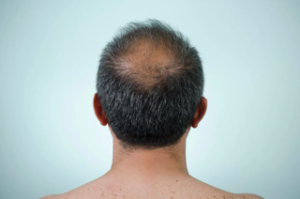On the 7th March 2024, BBC Science Focus published an article, featuring HairClone, which summarised the current understanding and next steps involved in curing male pattern balding. After speaking with the HairClone team, trends editor Tom Howarth discussed the science underlying male pattern balding, and how hairs miniaturise (where hair shafts become thinner and less dense), which gives the appearance that hair is lost.
 Specialised dermal papilla cells are lost over time, largely due to the hormone dihydrotestosterone, with certain hairs in specific areas of the scalp being more susceptible to miniaturisation in male and female pattern balding. Quoting a review article published within Experimental Dermatology and co-authored by HairClone partners and scientific advisors, the article explains how balding is due to differing genetics and cell differentiation during the early stages of development.
Specialised dermal papilla cells are lost over time, largely due to the hormone dihydrotestosterone, with certain hairs in specific areas of the scalp being more susceptible to miniaturisation in male and female pattern balding. Quoting a review article published within Experimental Dermatology and co-authored by HairClone partners and scientific advisors, the article explains how balding is due to differing genetics and cell differentiation during the early stages of development.
The article proceeds to discuss the benefits of cryopreserving hair follicles. This process involves harvesting and banking whole follicles from young, healthy, non-miniaturising areas of the scalp, and cryogenically freezing them. HairClone have the technology to multiply dermal papilla cells from cryopreserved follicles over a thousand times. The aim, once reaching clinical application, is to then inject these cells back into balding areas of the scalp to rebuild the shrinking follicles.
“We’ve got a manufacturing facility who have been trained; we’ve got paperwork in place; we just need to validate that process”, explained Dr Jennifer Dillon, Head of Research at HairClone.
The article also discusses alternative lines of research within the hair loss field, including the use of autologous fat grafting as a type of stem cell therapy, or the use of microRNAs to alter gene expression as a method of stimulating hair growth. However, these are still in development awaiting clinical approval and are not yet available.
Dr Claire Higgins, one of HairClone’s scientific advisors, quoted “We know how the hair follicle physically changes leading to balding … but it’s unclear what drives this change in the first place”. HairClone have ongoing lines of research into hair loss and treatment options, and are working with a team of clinics.
Check out the full article by BBC Science Focus here.

